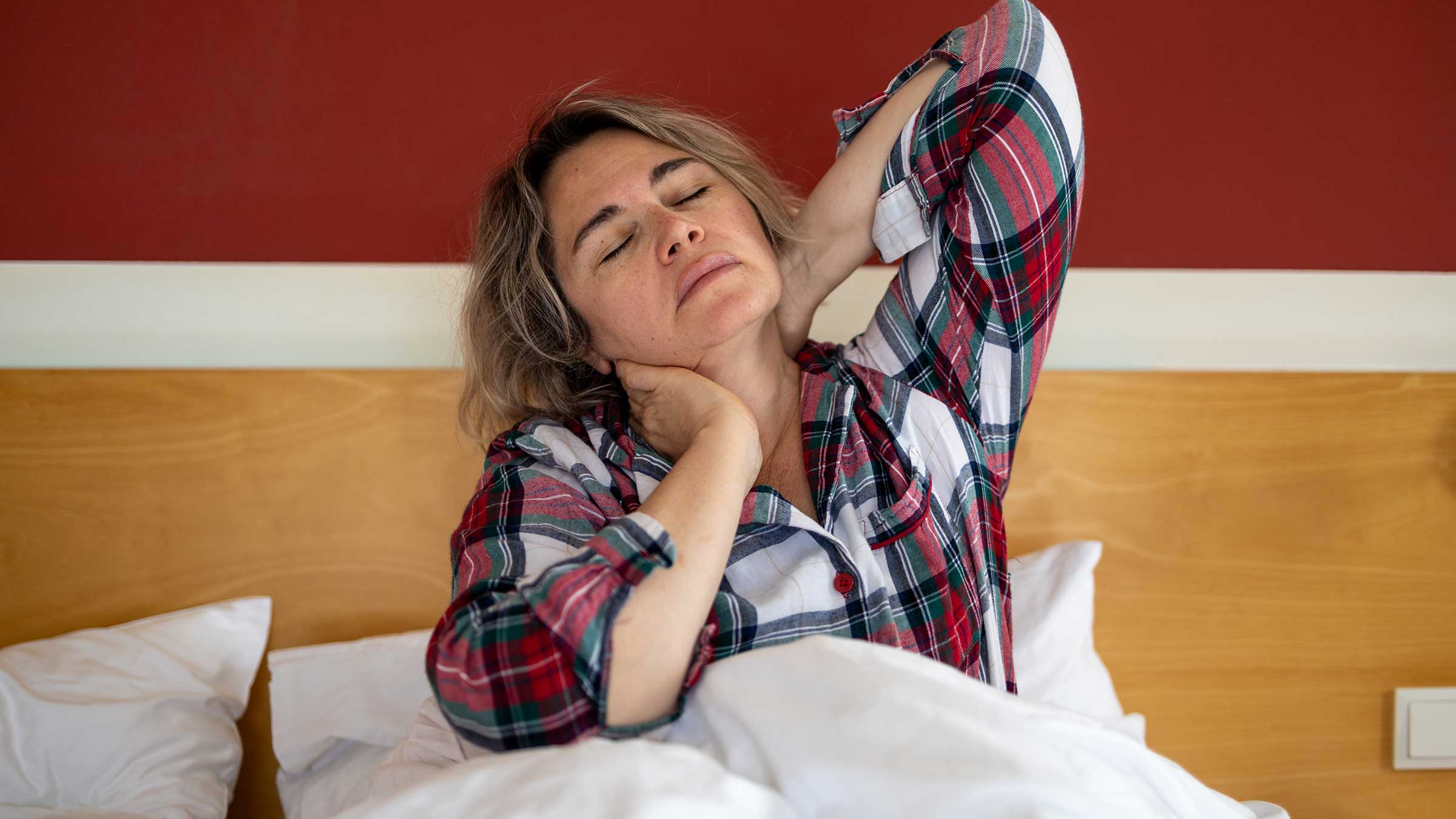
More and more, we’re learning how important sleep is for physical and mental health. A good night’s sleep not only helps us function well on a daily basis, but it also affects safety if we’re driving, operating machinery or making critical decisions.
When menopause comes knocking on the door, hormonal changes can lead to a number of challenges that make it difficult to get the rest needed to power through the day.
Menopause and sleep issues
Insomnia
The most common sleep issue during menopause is insomnia. People are unable to get enough sleep and don’t feel refreshed when waking up. This can happen multiple times a week, and the longer it goes on, the greater the impact on physical, mental and spiritual health.
Restless leg syndrome
Restless leg syndrome leads to twitching of the calf muscles that makes the legs move at night. This is often resolved upon standing, but it can be a problem that disrupts sleep.
Hot flashes and night sweats
Hot flashes and night sweats cause people to wake up with profuse sweating. The moisture on the body often leads to chills. For some people, the sweating is severe enough that they have to change their pajamas or their sheets. This can wake a significant other, leading to additional stress.
Unexpected bleeding
During the perimenopause period and the menopause transition, you still have bleeding. This might be crampy, random and heavy bleeding, which can occur during sleep hours.
When can I expect menopause-related sleep disturbances?
Sleep disturbances and other menopause-related symptoms happen during the menopausal transition period, which begins with perimenopause and ends with menopause.
Perimenopause is a phase when your periods start becoming irregular — sometimes longer, heavier and at first shorter intervals. Menopause occurs when you haven’t had a period for 12 straight months.
The average age of menopause is 51 years old. It can happen up to 10 years earlier and up to 10 years later.
Why do sleep disturbances happen during menopause?
Most sleep disturbances occur during the menopausal transition period due to fluctuations in hormone levels, which cause restless sleep.
Once menopause happens, hormone levels can become balanced. Often, the issues that were causing sleep disturbances improve or go away.
How to improve sleep during menopause
Explore hormone replacement therapy
Hormone replacement therapy, also called menopausal hormone therapy, has not been shown to help with sleep in general; however, it has been shown to improve restless leg syndrome and hot flashes. If those issues are affecting your sleep, it may help. Note that this therapy is not recommended for people with a history of blood clots, most cancers (especially breast cancer) or heart disease.
Quit smoking
If you’re a smoker, quit.
Lose weight
Exercise as part of a strategy to lose weight may help; evidence shows that exercise alone doesn't always help.
Have a sleep schedule
Go to bed and wake up at the same time every day.
Avoid triggers
Don’t use caffeine, nicotine or alcohol; all can trigger hot flashes. Avoid large meals close to bedtime.
Create a good sleep environment
Make sure your bedroom is at a good temperature, dark and quiet. Avoid screens, including TV, phones and tablets, before bed.
Tend to your mental health
A mental health professional can help identify negative sleep patterns and behaviors.
Use calming methods if they help
Try noncaffeinated teas, yoga, meditation or sleep-story apps or videos. If you use any vitamins or supplements, be sure to take only the recommended dose.
Make any of these changes in steps. Pick one or two things at a time, such as keeping to a sleep schedule and cutting caffeinated drinks from three to one a day. Try these changes for a month before adding more.
The benefits of sleep during menopause
Sleep has significant benefits during menopause. When you haven’t slept, anxiety and stress can increase, and problem-solving skills can decrease. You may have a shorter temper, and you’ll have less energy to exercise and eat healthy.
But there is a such thing as too much sleep, which can cause headaches and muscle aches, slow metabolism and disrupt your circadian rhythm. Try to stick to between 6 and 9 hours a night.

Ready to learn more about women’s health?
The Center for Women’s Health provides personalized care for women across their lifespans.
Expert care starts here




